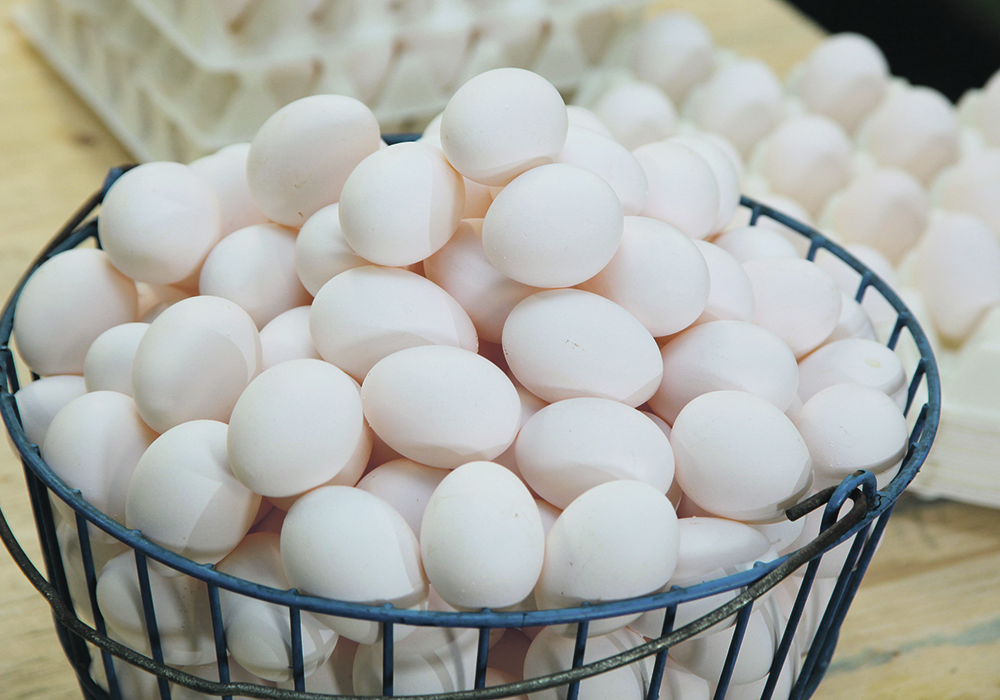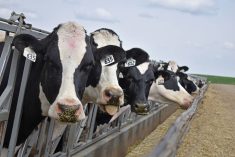Canadian farm organizations must find the courage to fight a federal private member’s bill that seeks to protect the country’s supply-managed sectors during future trade negotiations, said a beef industry leader.
Bill C-282 is a threat to Canada’s economy, said general manager Ryder Lee of the Canadian Cattle Association.
“We are seeing a bunch of chickenshits in the rest of the food space not willing to stand up in this,” he told the recent annual general meeting of Alberta Beef Producers in Red Deer.
Read Also

Using artificial intelligence in agriculture starts with the right data
Good data is critical as the agriculture sector increasingly adopts new AI technology to drive efficiency, sustainability and trust across all levels of the value chain.
CCA president Nathan Phinney is looking for all the help he can get in Ottawa because the association is feeling “a bit lonely” on the issue, said Lee.
“But members of general farm organizations, other exporters that you’d think would get it are going, ‘well, we’re not going to win anyway, so we’re not going to spend our political capital’,” he said.
“I think their lobbyist badge should be taken away. Sometimes you start from behind and have to push to get ahead.”
The proposed legislation was introduced last June by Bloc Quebecois MP Luc Theriault. It seeks to amend the Department of Foreign Affairs, Trade and Development Act so that eggs, poultry and dairy will be off the table during all future trade talks.
The Canadian Federation of Agriculture, which is the country’s largest farm organization, announced its support for the bill in a statement Feb. 8, which was the day the bill passed second reading in the House of Commons by a vote of 293 to 23.
“CFA has long advocated that no additional access to supply-managed sectors should be given in future trade agreements, and all political parties sitting in the House of Commons have committed to no additional access and no reductions in over-quota tariffs,” the organization said in a news release.
However, trade negotiations happen because other countries see an opportunity to sell a variety of their goods in Canada, said Lee during an interview. Because red meat and food in general is highly protected in countries around the world, food is an important reason for them to even consider coming to the table with Canada, he said.
“And anything that reduces other countries’ ideas of what might be the opportunity both ties negotiators’ hands, but I’d say reduces the ability or the likelihood of them even starting into a negotiation with Canada.”
The implications could be particularly huge for free trading, open markets such as Alberta, which contains much of Canada’s national herd of cattle, Phinney told the ABP meeting.
“So, I think it’s in our best interest to really pull our weight together and get there for some solid messaging.”
Canadian beef producers rely on access to foreign markets, with 49.7 percent of the country’s total beef exported in 2021 at a value of $4.45 billion. Lee said the threat posed by Bill C-282 not only extends beyond beef to other sectors of agriculture, but also to unrelated industries such as manufacturing that depend on exports.
However, it is a myth that supply management diminishes Canada’s international credibility and affects its ability to negotiate trade agreements, said a statement by Chicken Farmers of Canada. A total of 14 trade agreements have been negotiated with 51 countries by Canada since 1989 while maintaining the supply management system, it said.
“Canada is a strong negotiator and has proven in the past that it is able to exclude the supply-managed sectors while successfully concluding free trade negotiations. All countries want to protect the sectors they consider sensitive when negotiating international trade agreements.”
Although private member bills typically fail to gain enough support by MPs to become law, Bill C-282 has managed to pass key stages on the path to being implemented. It is identical to Bill C-216, which MPs also supported in the previous Parliament, but it died on the order paper when the 2021 election was called.
Bill C-282 has been referred to committee for further scrutiny, after which it must go through a third reading by MPs before being scrutinized and passed by the Senate.
Theriault has said it is necessary because the federal government “really did a number on this agricultural system” during the negotiations for agreements with North America, Europe and the Trans-Pacific Partnership with Asia.
However, Lee said Canadian trade negotiators have actually “done pretty good by supply management in the past… it’s that threat to even getting started in the conversation that I don’t think is getting understood.”
















